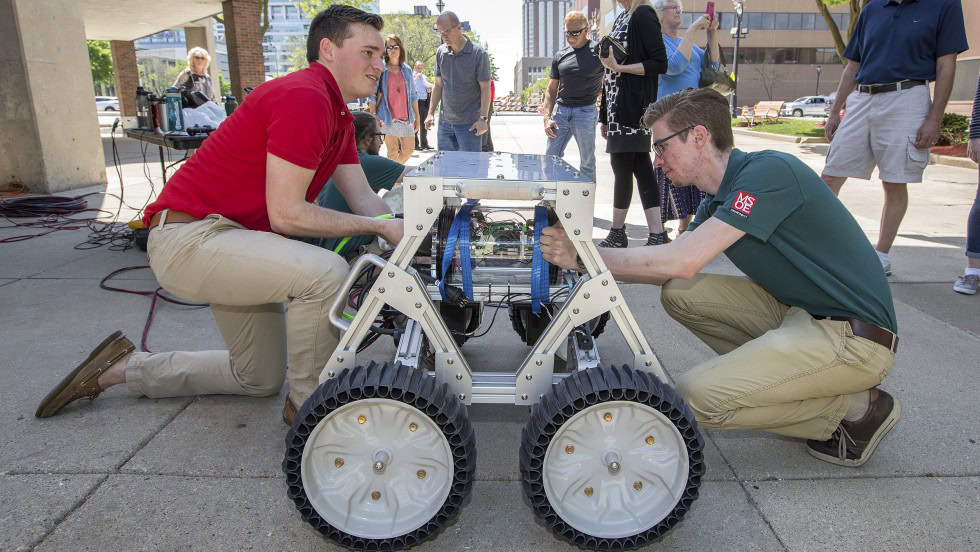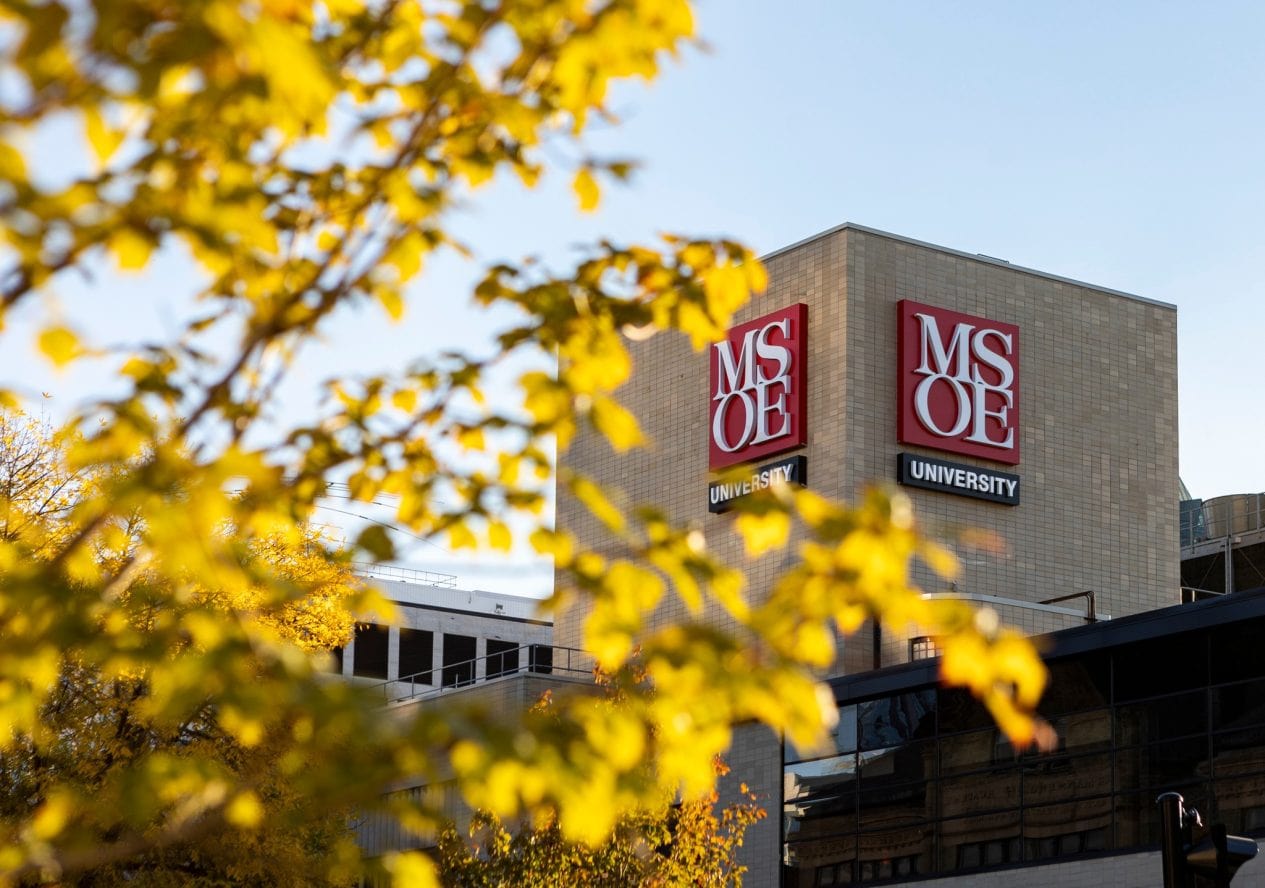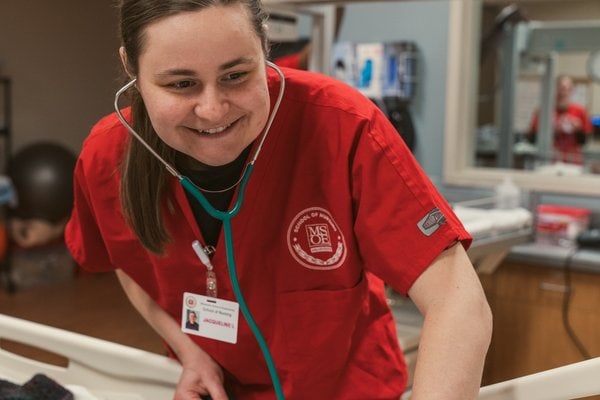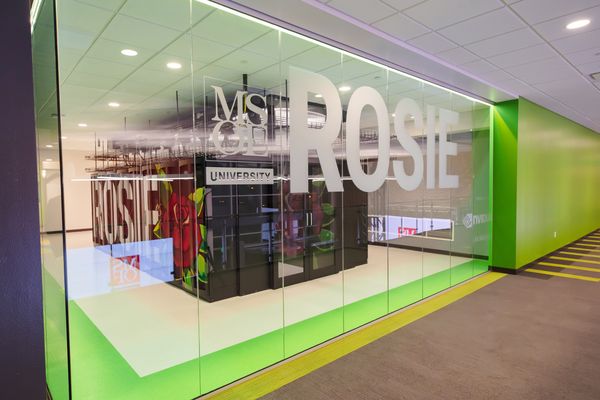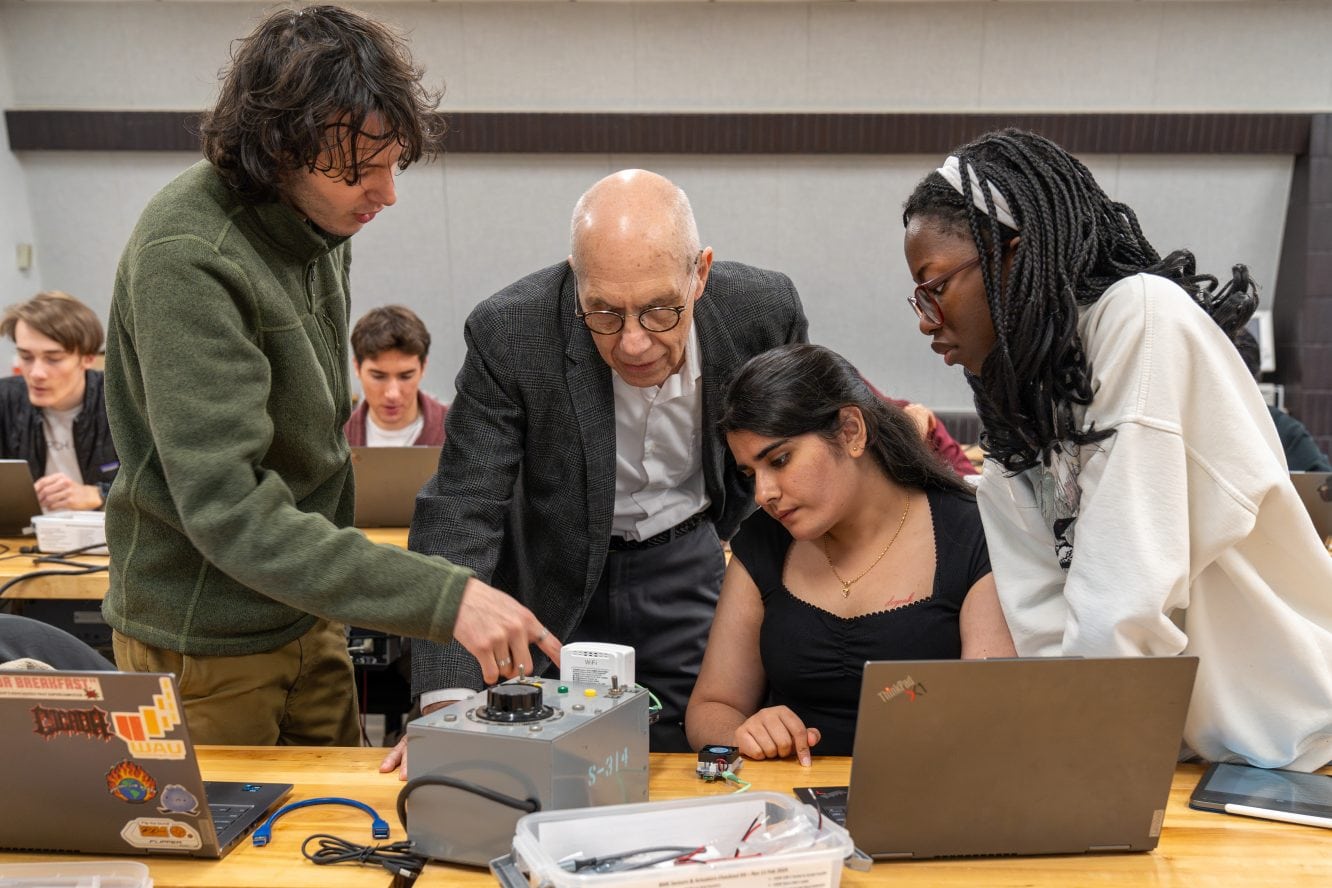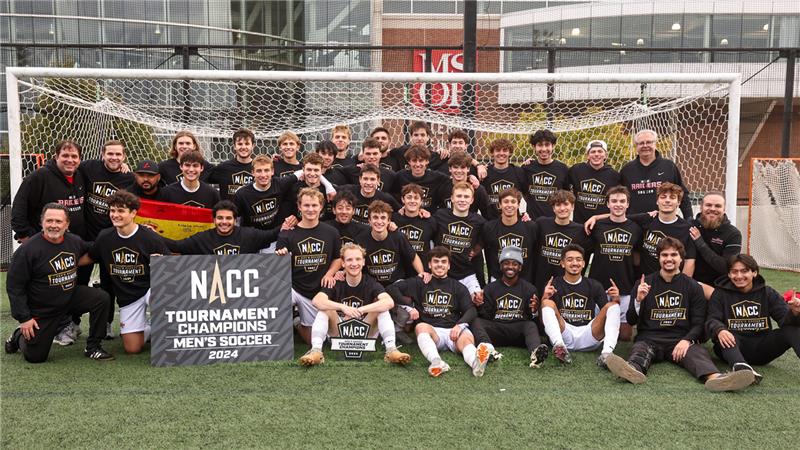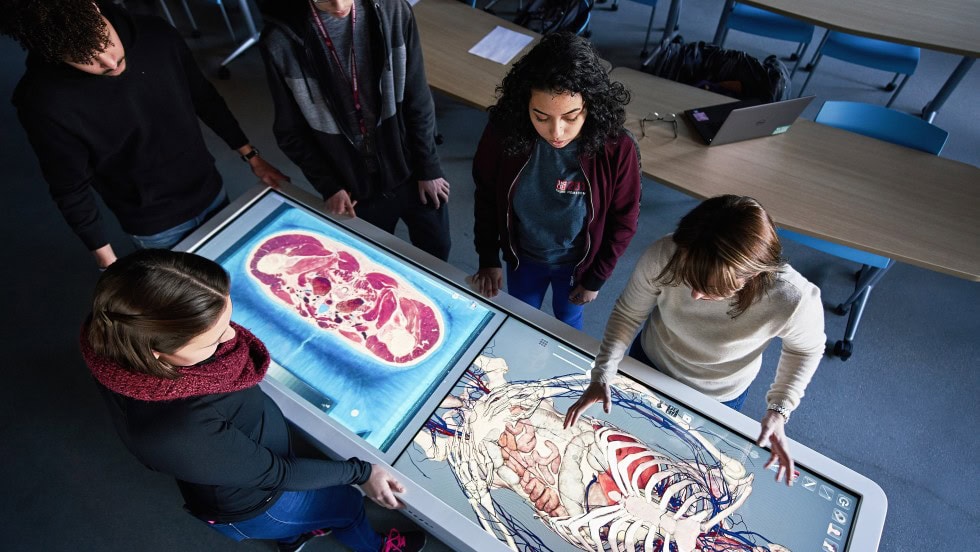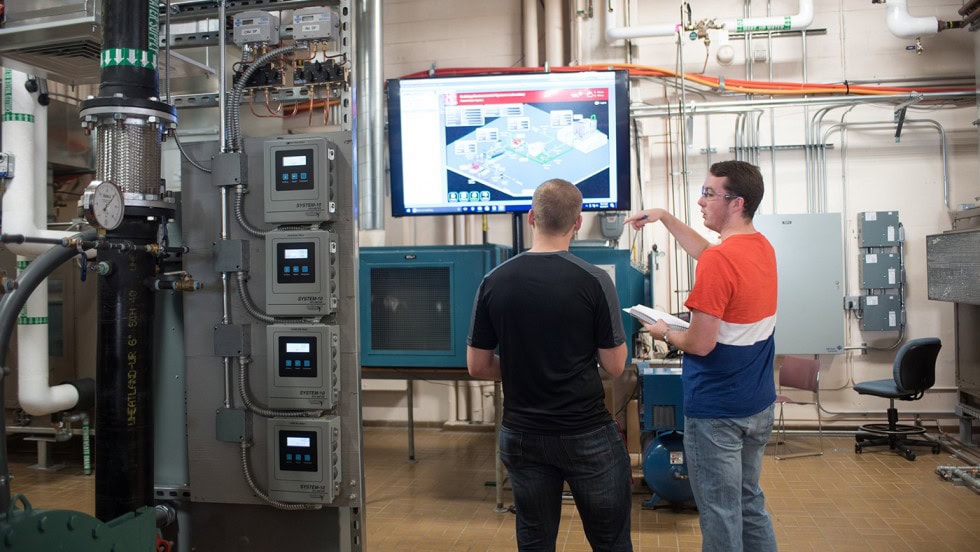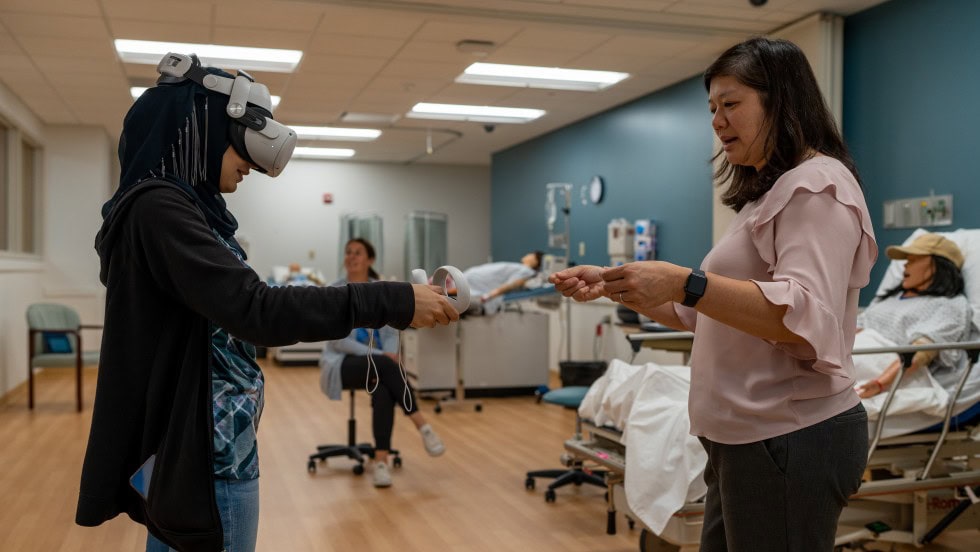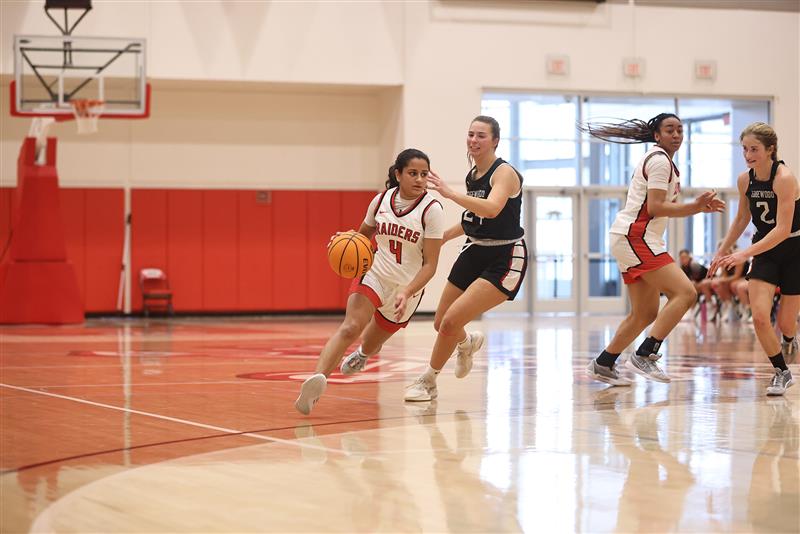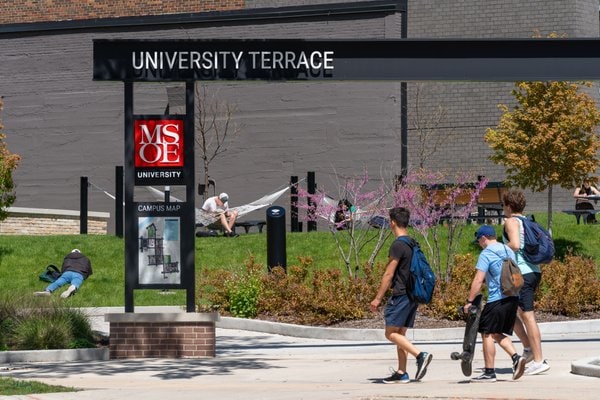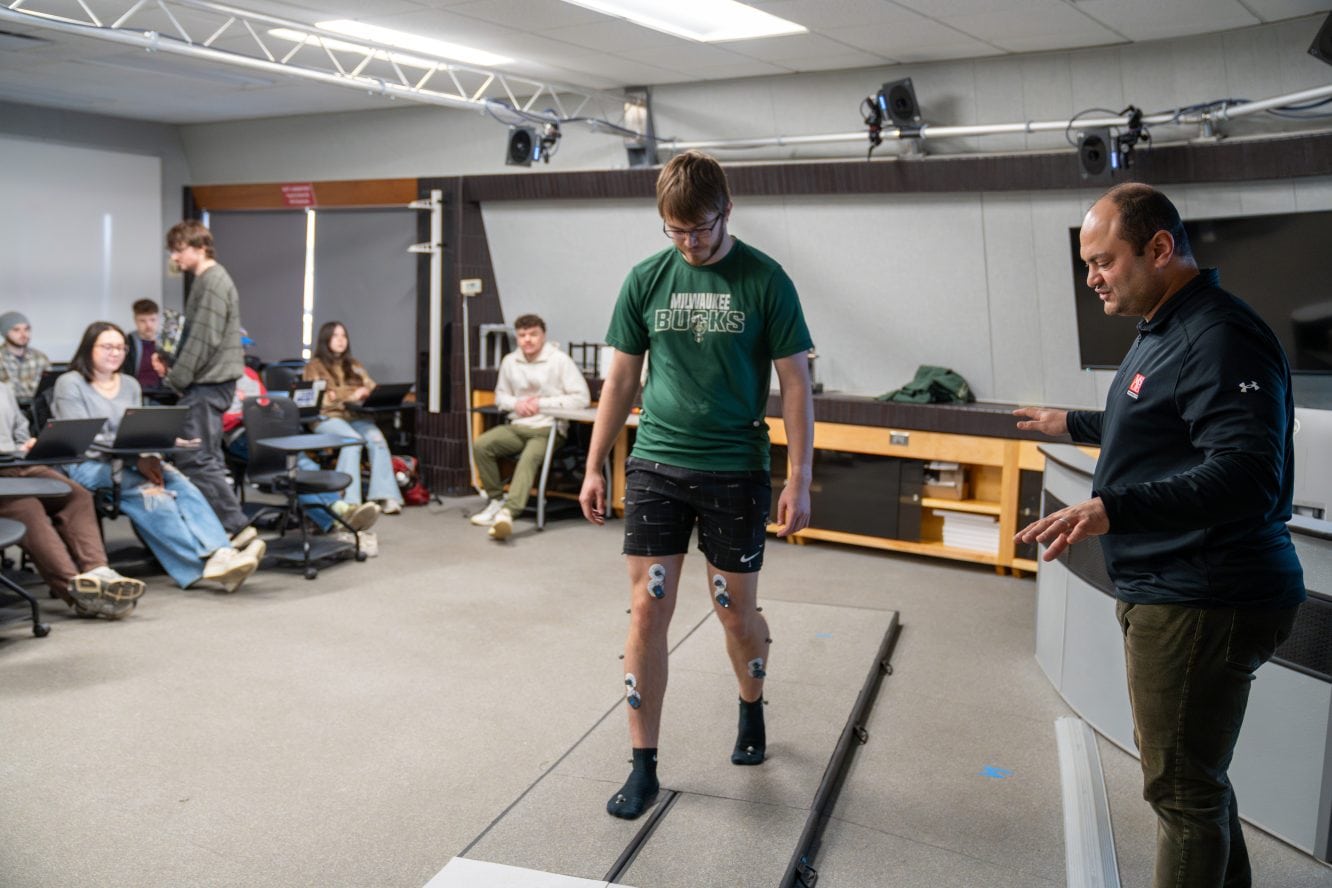Milwaukee School of Engineering
Milwaukee, Wisconsin
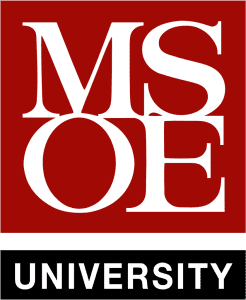
Milwaukee School of Engineering (MSOE) blends rigorous academics with immersive, real-world learning in the heart of a major Midwestern city. Known for small classes, faculty who teach (not TAs), and industry-aligned programs, MSOE prepares students to solve meaningful problems from day one and graduate ready to lead.
MSOE’s downtown location places students steps from internships, co-ops, startups, and global companies. The result is a powerful mix of theory, application, and professional mentorship, all with the benefits of a vibrant urban campus that hums with projects, competitions, and innovation.
Get to know Milwaukee School of Engineering
College Highlights
Learning at MSOE is unapologetically hands-on. From the first year, students design, build, test, and iterate in modern labs, studios, and makerspaces, applying classroom concepts to concrete challenges. Signature, industry-sponsored projects and multi-semester design sequences give undergraduates authentic experience with client needs, timelines, budgets, testing protocols, and documentation.
Experiential learning extends across majors, from engineering and computing to business, UX, and nursing. Students tackle human-centered design problems, compete on national teams (think robotics, Baja/Supermileage, cyber defense), and join research or prototype initiatives with faculty. By the time capstone season arrives, they’re already fluent in teamwork, project management, and professional communication.
CLASS SIZE
The number of sections of each class size.
2-9: 71 | 10-19: 216 | 20-29: 286
30-39: 47 | 40-49: 5 | 50-99: 0 | 100+: 1
ENROLLMENT BY ETHNICITY
Non-U.S. Citizen: 5%
Hispanic/Latine: 11%
Black or African American, non-Hispanic: 3%
White, non-Hispanic: 67%
Native/Indigenous American or Alaska Native, non-Hispanic: 0%
Asian, non-Hispanic: 6%
Native Hawaiian or other Pacific Islander, non-Hispanic: 0%
Two or more races, non-Hispanic: 3%
Race and/or ethnicity unknown: 5%
MSOE’s teaching model centers on access and mentorship. Faculty bring relevant industry experience into the classroom and keep sections small so students can ask deeper questions, get immediate feedback, and build relationships that last. Courses emphasize design thinking, systems integration, and the analytical habits that employers prize.
Curricula are intentionally modern and interdisciplinary. Whether optimizing a manufacturing cell, securing a network, modeling a fluid system, or managing a clinical scenario, students learn to connect math and science fundamentals with contemporary tools and standards. Frequent labs, studios, and code reviews keep learning active and outcomes measurable.
SPECIAL STUDY OPTIONS
Programs available at this institution.
Accelerated program
Double major
Dual enrollment
Honors Program
Independent study
Internships
Study abroad
Undergraduate research
MSOE offers a tight-knit, collaborative culture in a lively city setting. Students find their people through professional societies, cultural organizations, design teams, esports, music and theatre, campus ministry, and NCAA Division III athletics. Traditions, hackathons, and showcase nights make it easy to plug in and celebrate what you create together.
Milwaukee itself is part of the classroom: an affordable, lakefront city with a strong tech-and-manufacturing ecosystem, renowned healthcare networks, and a buzzing arts and food scene. Internships, co-ops, and service projects are woven into city life, giving students opportunities to contribute, network, and explore careers without leaving town.
SCHOOL LOCATION
MSOE’s beautiful downtown location puts you within easy walking distance of restaurants, coffee shops, sporting arenas, concert venues, festivals, outdoor recreation, Lake Michigan, and lots more.
ATHLETICS
The MSOE Raiders have 27 teams in men’s and women’s intercollegiate sports, competing in NCAA Division III. School colors are red and white.
MEN’S TEAMS:
- Baseball
- Basketball
- Cross Country
- Golf
- Ice Hockey
- Lacrosse
- Rowing
- Soccer
- Swimming and Diving
- Tennis
- Track & Field (indoor & outdoor)
- Volleyball
- Wrestling
WOMEN’S TEAMS:
- Basketball
- Bowling
- Cross Country
- Golf
- Ice Hockey
- Lacrosse
- Rowing
- Soccer
- Softball
- Swimming and Diving
- Tennis
- Track & Field (indoor & outdoor)
- Volleyball
- Wrestling
MSOE also offers seasonal intramural and club sports, as well as Esports.
RESIDENCE LIFE
Percent of students living on campus.
First-time, first-year (freshman) students: 90%
Undergraduates:50%
Campus housing options.
Coed dorms
Apartments for married students
Apartments for single students
Theme housing
Living-learning communities
Career readiness is baked in. Many students complete a co-op or multiple internships, translating directly to confidence, professional references, and job offers. The career services team partners closely with academic departments and employers to host targeted fairs, resume critiques, mock interviews, and networking events throughout the year.
Alumni outcomes reflect MSOE’s applied focus: graduates step into roles in product design, automation, software, biomedical and clinical environments, data and AI, building systems, UX, supply chain, and beyond. Others pursue graduate study or launch startups. Across paths, employers consistently note MSOE grads’ readiness to contribute on day one, agreeing that they are technically sharp, communicative, and reliable under pressure.
98% of MSOE’s class of 2023-24 are employed in their area of study or are attending graduate school. Their average starting salary is $75,532.
Admission
ADMISSIONS FACTORS
Very Important
Academic GPA
Important
Rigor of secondary school record | Extracurricular activities | Talent/ability
Considered
Standardized test scores | Character/personal qualities
TEST SCORES
Optional
FRESHMAN PROFILE
SAT Composite
25th Percentile: 1180 | 75th Percentile: 1340
SAT Evidence-Based Reading and Writing
25th Percentile: 550 | 75th Percentile: 670
SAT Math
25th Percentile: 600 | 75th Percentile: 690
ACT Composite
25th Percentile: 25 | 75th Percentile: 31
ACT Math
25th Percentile: 26 | 75th Percentile: 32
ACT English
25th Percentile: 23 | 75th Percentile: 31
ACT Science
25th Percentile: 25 | 75th Percentile: 32
ACT Reading
25th Percentile: 23 | 75th Percentile: 32
Tuition & Cost
Tuition: $48,240
Fees: $2,240
Room: $8,818
Board: $5,166
What Others are Saying
Contact Milwaukee School of Engineering
Contact Admissions
msoe.edu/admissions-aid/undergraduate-admissions
(800) 332-6763
explore@msoe.edu
Campus Location
1025 North Broadway
Milwaukee, WI 53302
